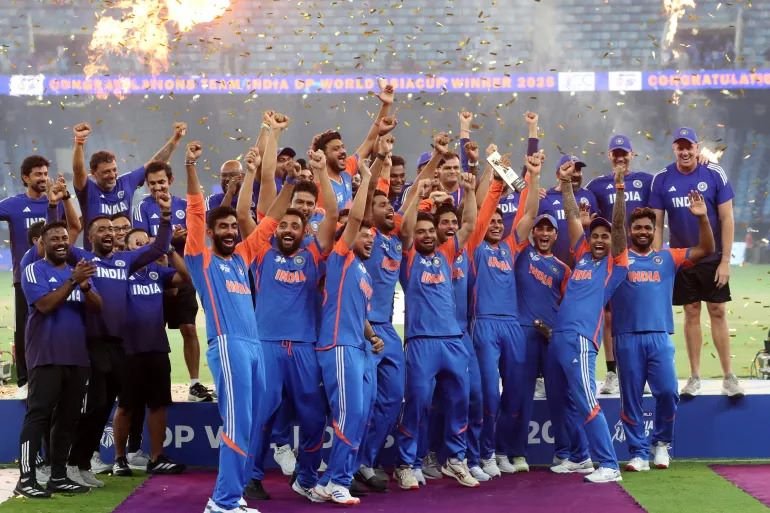
In a riveting final played on 28 September 2025 at the Dubai International Cricket Stadium, India edged out Pakistan by 5 wickets to lift the Asia Cup trophy. This victory marked India’s ninth Asia Cup title (across all formats) and the successful defense of their crown in the T20 format.
What made this match especially compelling was not just the cricket on display but the tensions that lingered off it. A final tinged with controversy, politics, and drama.
The Match Unfolds- Collapse & Comeback
Pakistan’s Brief Shine, Then Collapse
Batting first, Pakistan looked in control early. They raced to 113 for 1 before India’s spinners, especially Kuldeep Yadav, who picked up 4 wickets for 30 runs, triggered a collapse. From that strong platform, the Pakistani batting frazzled under pressure, losing nine wickets for just 33 runs, eventually being all out for 146 in 19.1 overs. Their middle order couldn’t withstand the spin assault or live up to the early promise. Fielding lapses,dropped catches and a missed run‑out chance also proved costly.
India’s Rocky Start, Then Masterclass
India’s chase began shakily. Within the first few overs, two key wickets fell: Abhishek Sharma and captain Suryakumar Yadav both departed early. The score stood at 10 for 2 in the third over. Enter Tilak Varma. Composed under pressure, he played a match‑defining knock of 69 not out off 53 balls, including four sixes and three boundaries. He weathered the storm alongside Shivam Dube, who offered steady support until he fell with six balls and nine runs remaining. With the tension mounting, Rinku Singh stepped up and hit the winning runs off the next (final) ball to ignite celebrations. India reached 150/5 in 19.4 overs, sealing a dramatic finish with just two balls to spare.
Off‑Field Drama & Diplomatic Undertones
This was more than just a cricket game. The post‑match presentation became a stage for expressions of protest. India’s team refused to accept the trophy or medals from Mohsin Naqvi, who was serving as both ACC chairman and Pakistan’s Interior Minister , roles that drew criticism and cynicism amid heightened political tensions. The championship ceremony was delayed by over an hour, and a formal handshake or joint celebration never materialized. In the end, some Indian players accepted their prize money, but not from Naqvi himself. The Indian squad mocked a “trophy” in a symbolic celebration among themselves, rather than participating in the traditional formalities.
Such actions reflect how deeply politics and cricket are intertwined when these two nations face off. While it evoked strong reactions, it also underscored India’s stance that, for them, the cricket field is inseparable from national discourse.
